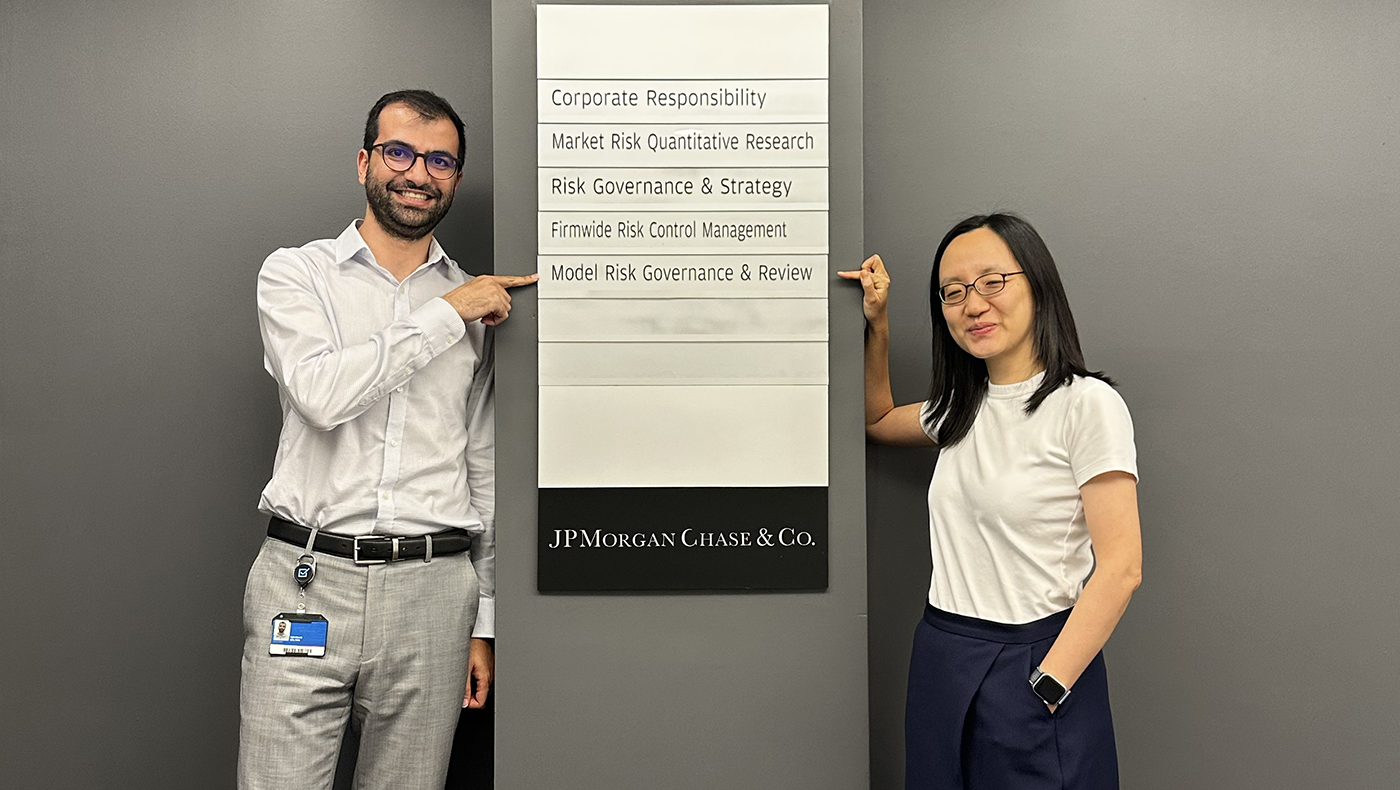This summer, students from the University of Delaware’s Alfred Lerner College of Business and Economics discovered new avenues for professional preparation and practical hands-on experience. Lerner College students pursued an array of internships, externships and other professional development opportunities. From MBA scholars to undergraduates entering their second year at UD, students across a spectrum of Lerner programs shared their experiences accomplishing an assortment of projects.
Our “My Summer Internship” series highlights these unique experiences, showcasing how students translated classroom knowledge into real-world success.
Mehrdad Soltani, Class of 2026 financial services analytics Ph.D. student, spent his summer as a quantitative associate analyst at JPMorgan Chase.
Lerner: How did you find out about this internship? Why did you pursue it?
Soltani: I heard about the internship through my network and the company’s careers page. I went for it because I want a quantitative role that mixes math, coding, and finance. I applied to both hedge funds and investment banks to find the best place to build those skills and work close to the markets.
Lerner: What was the most exciting task or project that you completed?
Soltani: I was in the Model Risk Governance & Review team, where a lot of our work involved reading long documents for modeling and writing careful reports. The most exciting project I finished was building a secure, local AI (LLM) assistant for our group. I connected it to our internal guidelines and past reviews so it could answer domain-specific questions like “what tests are required for this model?” or “how should we document limitations?” It ran fully on our network (no external data), so it met our compliance needs. It sped up first drafts and helped us find the right citations fast, which made our reviews more consistent and saved the team time.
Lerner: What did you learn from the internship that you think you wouldn’t have learned elsewhere?
Soltani: I learned how to balance innovation with immediate impact. If you chase only quick wins, you don’t grow. If you chase only big, new ideas, you can miss team needs. The sweet spot is a project portfolio: deliver small, useful fixes now, while also building one or two longer-term, innovative pieces (like the local LLM assistant I built). That balance helped me learn, grow, and still be reliable for the team.
Lerner: What is an example of a time where you were able to apply what you’ve learned at Lerner to your role?
Soltani: I drew on my research with my professor, the Text Mining course (FSAN course), the seminar course (FSAN 850), and the SQL course at Lerner, along with other classes that strengthened my analysis, communication, coding and quantitative skills.
Lerner: Did you face any challenges during your internship? If so, what was the issue and how did you overcome it?
Soltani: Yes. Challenges were a constant and integral part of the work. One example was aligning the team’s immediate needs with the fuller range of my skills. The required deliverables did not always showcase my capabilities, so I first met the defined scope precisely and on time. With my manager’s approval, I then went beyond the baseline – adding small, well-planned extensions that offered a more advanced or alternative perspective on the problem. This approach relied on clear communication, careful planning, and frequent check-ins to ensure we met all requirements while also advancing higher-level goals.
Lerner: What are your career plans, and how do you think the internship will push you closer to your professional goals?
Soltani: My plan is to build a career in industry as a quantitative professional, where I can combine math, coding, and finance to deliver practical impact. I chose industry over academia, and the internship was the gateway I needed. It gave me real exposure to how models are evaluated and used, strengthened my communication and project-planning skills, and helped me align innovation with immediate team needs. As a direct result, I received three offers from three different teams and accepted a role to join JPMorgan Chase in the New York City headquarters next year. This experience moved me closer to my goals by proving I can deliver in a rigorous, real-world environment and by opening the door to a strong full-time start.




